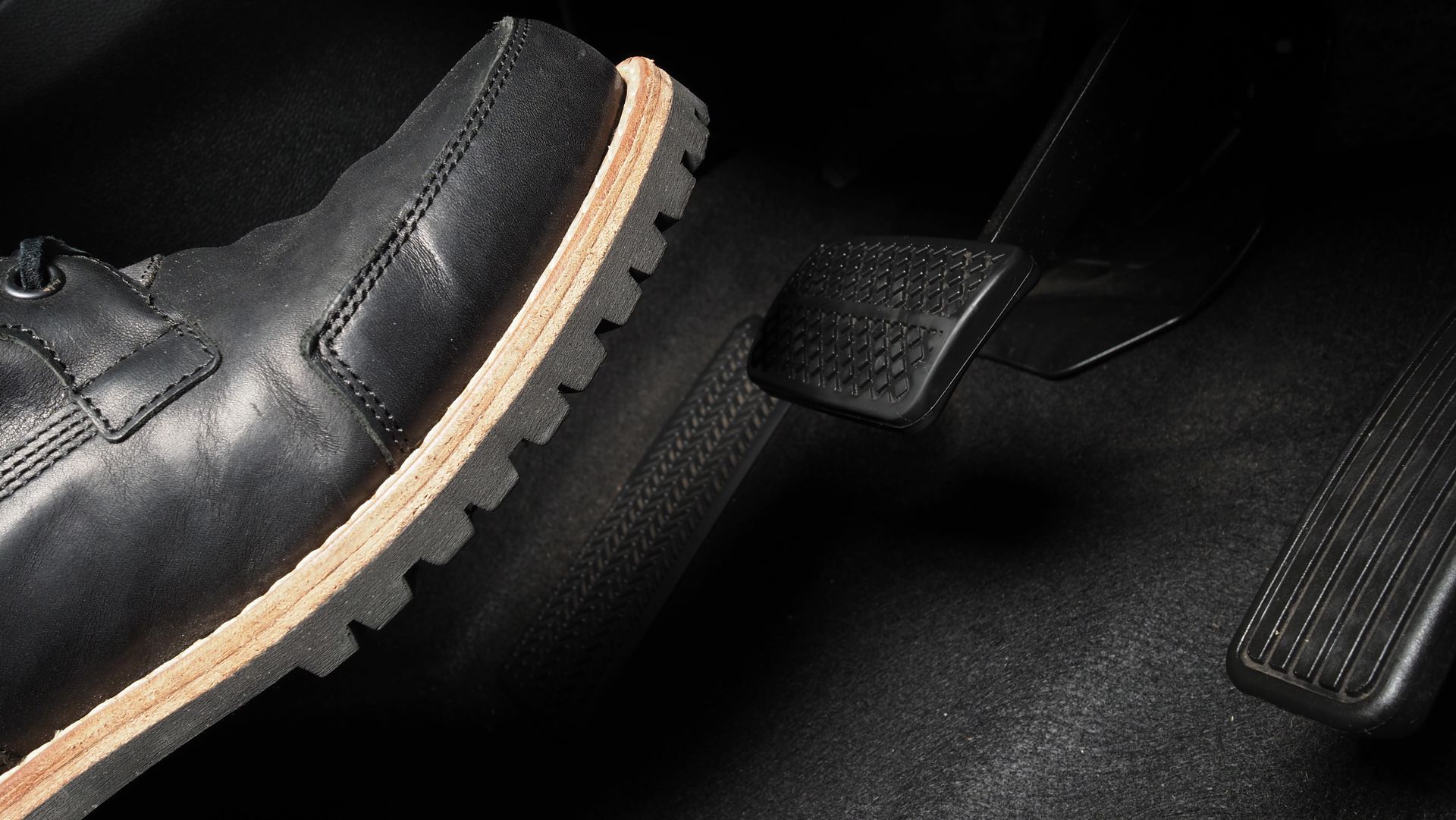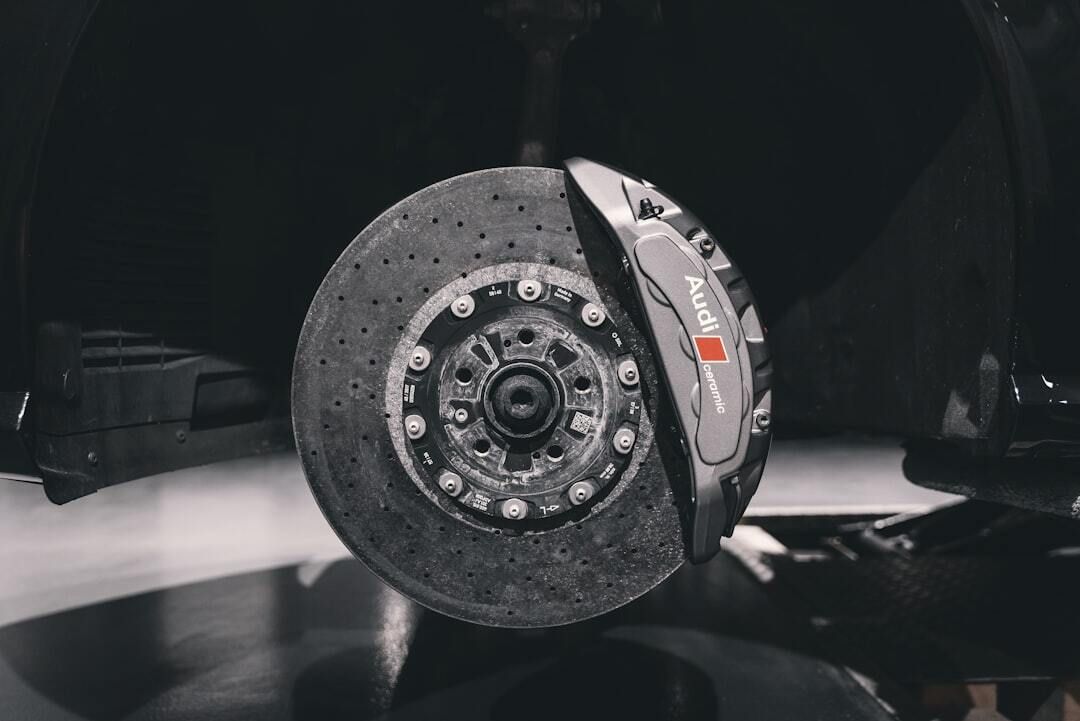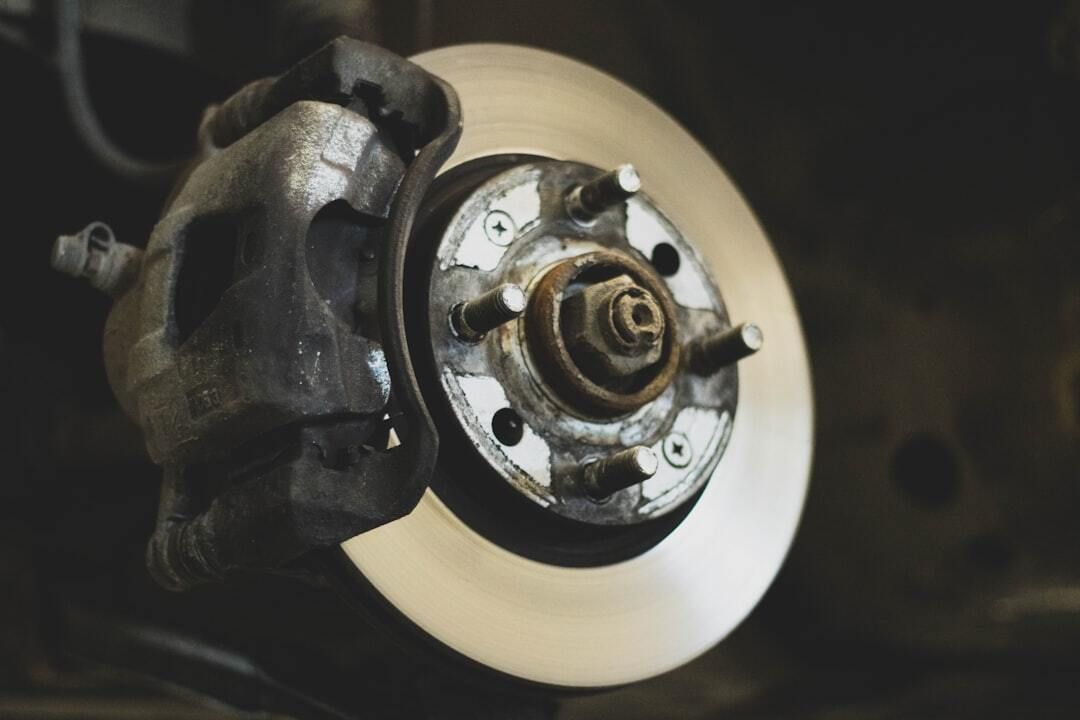Why are my brakes making noise?

Brake noise is a common concern for many vehicle owners. It can be unsettling, especially when you're unsure of the cause.
This guide aims to shed light on the mystery of brake noise. We'll explore the common causes and how to identify them.
From worn brake pads to caliper issues, many factors can contribute to brake noise. Understanding these can help you diagnose and address the problem effectively.
We'll also delve into the importance of regular brake service. Timely maintenance can prevent brake noise and more serious issues like brake failure.
Whether you're a car owner or a DIY auto repair enthusiast, this guide will provide valuable insights. So, let's dive in and demystify the causes of brake noise
Understanding Brake Noise: An Overview
Brake noise is a common issue that can indicate a variety of problems with a vehicle's braking system. It's not just a nuisance, but can also be a warning signal of underlying issues.
The noise can range from a mild squeak to a loud grinding sound. Each type of noise can point to a different problem, from worn brake pads to a stuck caliper.
Here are some common types of brake noise and what they might indicate:
- Squeaking or squealing: Often a sign of worn brake pads or vibrations between the brake pad and the caliper.
- Grinding noise: Can indicate the presence of debris or rust on the brake rotor, or severely worn brake pads.
- High-pitched noise at low speeds: May suggest the need for brake pad replacement.
- Continuous squeal: Could be a sign of a stuck caliper.
Understanding these noises and their potential causes is the first step in addressing brake noise issues. In the following sections, we'll delve deeper into each cause and how to deal with it.
Common Causes of Brake Noise
Brake noise can be caused by a variety of issues within the braking system. Some of these are simple and easy to fix, while others may require more extensive repairs.
Here are some of the most common causes of brake noise:
- Worn brake pads
- Damaged or warped rotors
- Caliper issues
- Debris and corrosion
- Insufficient lubrication
- Brake pad material and quality
Let's take a closer look at each of these causes.
Worn Brake Pads
Worn brake pads are one of the most common causes of brake noise. As the pads wear down, they become thinner and less effective at stopping the vehicle.
This can lead to a squeaking or squealing noise, especially when the brake pads are worn down to their wear indicators.
Damaged or Warped Rotors
The brake rotors, which the brake pads clamp onto to stop the vehicle, can also cause noise if they are damaged or warped.
A warped rotor can cause a pulsating noise, while damage to the rotor can lead to a grinding noise when braking.
Caliper Issues
The brake caliper, which houses the brake pads, can also cause noise if it becomes stuck or misaligned.
A stuck caliper can cause a continuous high-pitched squeal, even when the vehicle is not braking.
Debris and Corrosion
Debris or rust on the brake rotor can cause a grinding noise when braking. This is often a sign that the rotor needs to be cleaned or replaced.
Corrosion within the brake system can also lead to noise, as well as other issues such as reduced braking efficiency.
Insufficient Lubrication
Insufficient lubrication of the brake system components can lead to noise due to increased friction.
This can often be resolved by cleaning and lubricating the brake system components.
Brake Pad Material and Quality
The type of material used in brake pads can affect the level of noise produced. For example, metallic brake pads are often noisier than ceramic or organic pads.
Additionally, low-quality or incorrect type of brake pads for the vehicle can also lead to increased brake noise.

Diagnosing Different Brake Noises
Understanding the different types of brake noises can help diagnose the problem more accurately. Each noise can indicate a different issue within the braking system.
Here are some of the most common types of brake noises and what they might mean:
- Squeaking or squealing
- Grinding sounds
- High-pitched noise at low speeds
Let's delve into each of these noises in more detail.
Squeaking vs. Squealing
Squeaking is often a sign of worn brake pads. When the pads wear down to their wear indicators, they can produce a squeaking noise.
On the other hand, a squealing noise can be caused by vibrations between the brake pad and the caliper. This is often a sign of a stuck or misaligned caliper.
Grinding Sounds
Grinding sounds are usually a sign of serious issues within the braking system. This noise often indicates the presence of debris or rust on the brake rotor.
It can also be a sign of damaged or warped rotors. If you hear a grinding noise when braking, it's important to have your brakes inspected as soon as possible.
High-Pitched Noise at Low Speeds
A high-pitched noise at low speeds may indicate the need for brake pad replacement. This noise is often caused by the wear indicators on the brake pads making contact with the rotors.
If you hear this noise, it's a good idea to schedule a brake service to prevent further damage to your braking system.
The Role of Brake Fluid and Brake Lines in Brake Noise
Brake fluid plays a crucial role in the proper functioning of the brake system. It transfers the force of your foot on the brake pedal to the brake calipers, allowing your vehicle to slow down or stop.
However, if the brake fluid is old or contaminated, it can lead to a variety of issues, including brake noise. Air in the brake line or a brake fluid leak can also cause a soft or spongy brake pedal, which can contribute to brake noise.
The brake line, which carries brake fluid, can become corroded or damaged, leading to brake noise and potential failure. Regularly replacing brake fluid and inspecting the brake lines can help prevent these issues and ensure the longevity of your braking system.
When to Seek Professional Brake Service
Brake noise can be a sign of a serious issue with your vehicle's braking system. It's important to seek professional brake service as soon as you notice unusual noises. Ignoring these signs can lead to more extensive and costly repairs down the line.
While some brake noise can be resolved with simple maintenance, other issues require the expertise of a professional. Brake repair should be performed by a professional unless the vehicle owner has the necessary skills and tools.
Choosing the right auto repair shop for brake service is crucial. Look for a shop that specializes in brake repair and has a good reputation for quality service.
Warning Signs of Brake Failure
Brake failure is a serious safety concern. Unusual brake noises can be a warning sign of impending brake failure. Other signs include a soft or spongy brake pedal, a brake warning light on the dashboard, and decreased braking performance.

If you notice any of these signs, it's important to have your vehicle inspected by a professional as soon as possible. Ignoring these signs can lead to a dangerous situation on the road.
The Importance of Regular Brake Inspections
Regular brake inspections are essential for maintaining the health of your braking system. These inspections should include checking the brake pads, rotors, calipers, and brake lines.
A thorough brake inspection can identify potential issues before they become serious problems. It can also help you avoid unexpected brake failure and costly repairs. Regular inspections and maintenance are key to preventing brake noise and ensuring the longevity of your brake system.
DIY Brake Repair: What You Should Know
If you're a DIY auto repair enthusiast, you might be tempted to tackle brake noise issues on your own. While some brake maintenance tasks can be performed at home, it's important to understand the limits of DIY brake repair.
Brake systems are complex and require a certain level of knowledge and skill to repair. Without the proper tools and experience, you could potentially cause more harm than good.
Moreover, safety should always be your top priority. If you're unsure about any aspect of brake repair, it's best to leave it to the professionals.
Basic Brake System Maintenance Tips
Regular maintenance can go a long way in preventing brake noise and other issues. Here are a few basic maintenance tasks that you can perform at home:
- Regularly check your brake fluid level and top it up if necessary.
- Clean and lubricate the brake system components to prevent squeaking and squealing.
- Inspect your brake pads and rotors for wear and tear.
- Listen for any unusual noises when braking and address them promptly.
Remember, these tasks should be performed with care and proper safety precautions.
When to Leave it to the Professionals
While basic maintenance can be done at home, certain tasks should be left to the professionals. These include replacing brake pads, repairing or replacing rotors, and fixing brake fluid leaks.
Professional auto repair shops have the necessary tools and expertise to handle these tasks safely and effectively. They can also diagnose and fix more complex issues that might be causing brake noise.
Remember, when it comes to brake repair, it's always better to be safe than sorry. If you're unsure about anything, don't hesitate to seek professional help.
Preventative Measures to Reduce Brake Noise
Preventing brake noise starts with regular maintenance and care of your vehicle's braking system. By keeping an eye on the condition of your brake components and addressing any issues promptly, you can significantly reduce the chances of experiencing brake noise.
Here are some preventative measures you can take:
- Regularly inspect your brake pads and rotors for signs of wear and tear.
- Keep your brake system clean and well-lubricated to prevent squeaking and squealing.
- Use high-quality brake pads that are suitable for your vehicle.
- Regularly check and top up your brake fluid.
- Have your brakes serviced by a professional at least once a year.
Remember, preventative maintenance is not just about reducing brake noise. It's also about ensuring the safety and longevity of your vehicle's braking system. So, don't wait for the noise to start before you take action. Be proactive in maintaining your brakes, and you'll reap the benefits in the long run.
Conclusion: Addressing Brake Noise for Safety and Peace of Mind
Brake noise can be more than just an annoyance. It's often a warning sign of underlying issues that could compromise the safety of your vehicle. By understanding the common causes of brake noise and knowing how to diagnose different types of brake sounds, you can take the necessary steps to address the problem before it escalates.
Remember, regular brake service and maintenance are key to preventing brake noise and ensuring the longevity of your braking system. Don't ignore the noise—address it promptly for your safety and peace of mind.
Brake Service FAQ
Is brake noise always a sign of a problem?
Not always. Some brake noise can be normal, especially during certain weather conditions or if new brake pads are being broken in. However, persistent or unusual brake noise should not be ignored.
Can I fix brake noise myself?
It depends on the cause of the noise and your level of mechanical skill. Some issues, like cleaning and lubricating brake components, can be done at home. But more complex problems should be handled by a professional.
How often should I have my brakes serviced?
It's recommended to have your brakes inspected at least once a year or every 12,000 miles. However, if you notice any signs of brake problems, such as noise, you should have them checked immediately.
Can brake noise damage my vehicle?
Yes, if left untreated. Brake noise can be a sign of worn or damaged components. If these issues are not addressed, they can lead to more serious damage and potential brake failure.
What should I do if my brakes are making noise?
Don't ignore it. If your brakes are making noise, it's important to have them inspected as soon as possible to identify and fix the problem. Regular maintenance and prompt attention to issues can help keep your brakes working safely and efficiently.


